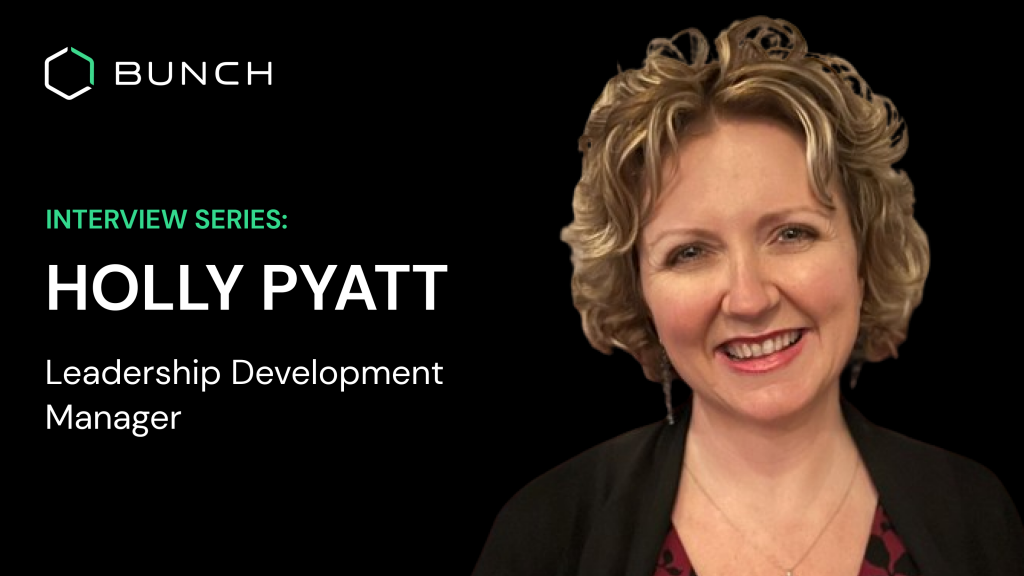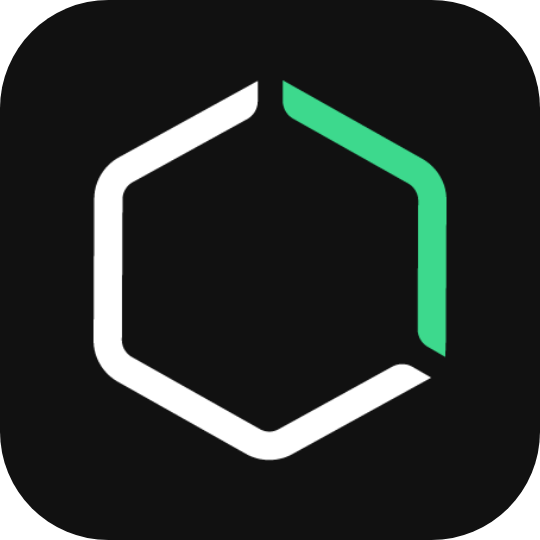
Leadership, to me, means being someone others look to for guidance – irrespective of having a formal title.
Holly Pyatt
In this edition of our new Leadership Development Interview Series, we sat down with Holly Pyatt to learn from her experience in creating L&D programs on leadership, and her perspective on the promise & pitfalls of AI in leadership development.
Holly, can you tell us a bit about yourself?
I’m a Leadership Development Manager at a healthcare technology organization that aims to make healthcare management more efficient given the high cost in the United States. Our company comprises about 1200 employees, and my focus here has been on establishing and enhancing leadership development initiatives.
What does leadership mean to you, and which skills do people need to succeed as a leader?
Leadership, to me, means being someone others look to for guidance, irrespective of having a formal title. It involves both people skills and business acumen. In terms of skills, effective leadership requires qualities like appreciating others, providing excellent coaching and feedback, engaging and motivating people individually, active listening, transparency, and adept communication across diverse groups.
What does leadership development look like at your company? Which tools and programs do you have in place, and how do you currently select new leadership talent to develop?
At my current organization, we are currently in the process of building our leadership development program. We’re focusing on individuals transitioning into or starting as people leaders. Our approach involves fostering self-awareness, emotional intelligence, and personality assessments. Everything leads towards creating individual development plans aligned with career aspirations. We aim to scale this from new leaders to higher management roles by integrating competency-based 360 assessments.
What was your biggest success story with implementing or improving a leadership development initiative?
In my previous role, managing a program for first and second-line leaders, we witnessed a substantial 35% increase in leadership effectiveness through pre-and post-assessments. The success stemmed from practical applications of learned skills, especially in scenarios where field-based leaders had to manage critical conversations effectively.
What are some current challenges with leadership development overall in your company? What are hard parts about developing leaders?
One significant challenge was establishing foundational elements, like a competency model, due to the lack of prior frameworks. Additionally, defining clear leadership levels in a less hierarchical organizational structure posed hurdles in designing relevant and timely curriculum. The shift from traditional lengthy classroom-based learning to dynamic, just-in-time, and applicable learning formats has been challenging but necessary.
Have you considered using AI tools in developing the future generation of leaders? Why/why not?
In my current role, we’re exploring AI tools, including using chat GPT for behavioral-based interview questions. There’s an interest in leveraging AI further for creating learning content efficiently. The potential of AI in facilitating accessible and applicable learning experiences is intriguing.
What applications of AI seem most promising to you from a leadership development standpoint? Where does AI fall flat?
AI’s promising aspects lie in aiding content creation, personalizing learning experiences, and streamlining administrative tasks like interview question generation. However, AI might lack the depth of human interaction and emotional intelligence crucial for leadership development, especially in handling complex people dynamics.
To learn from more experts on how to grow leaders at your company, check out our full list of interviews here.
If you’re looking to grow future leaders at your own company, get in touch to see how Bunch can enable you to give every person in your company a personalized, continuous development program in just 2 minutes a day.





